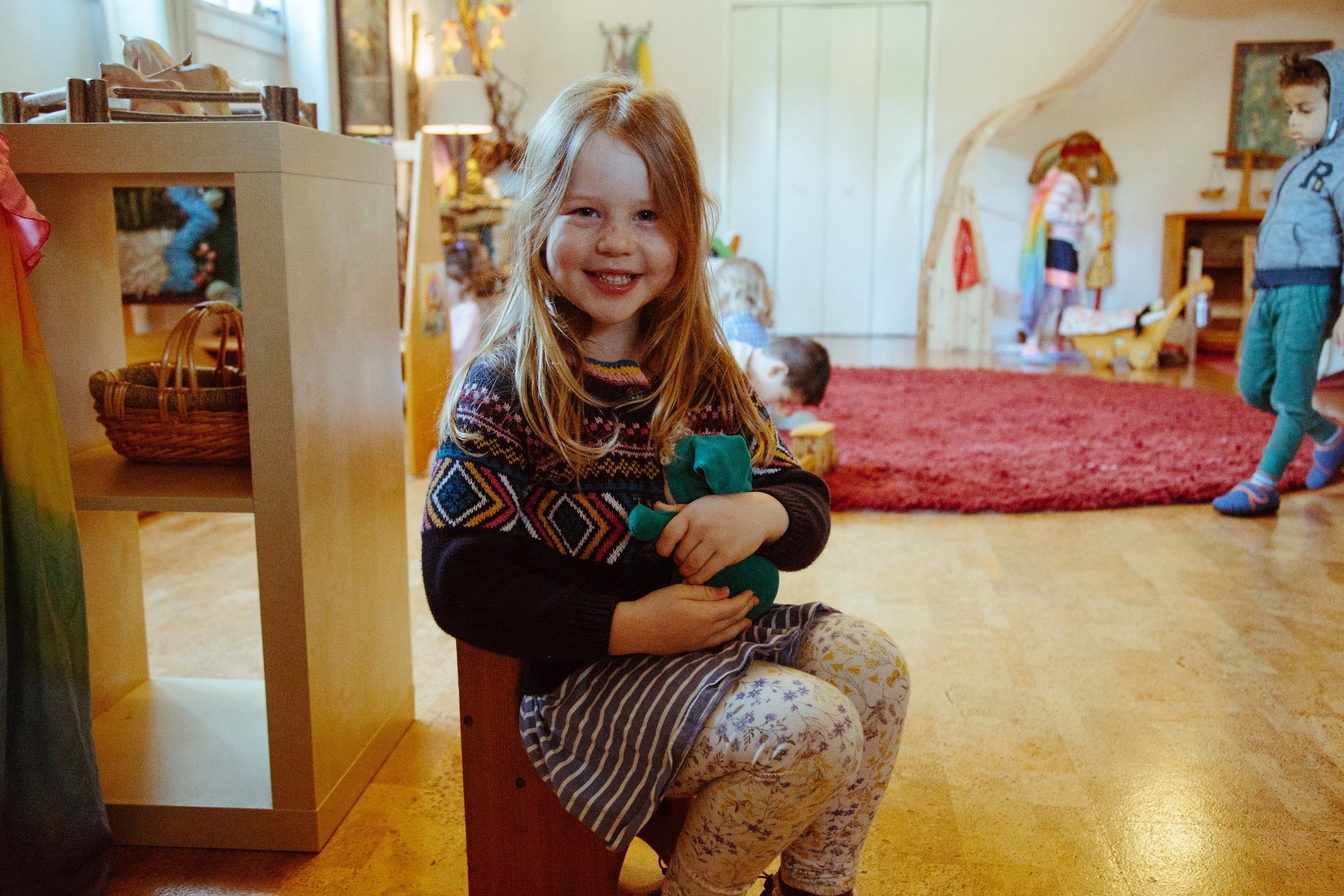Nurturing Childhood's Magic
A Journey into Waldorf Early Education
Waldorf Early Childhood Education, inspired by the wisdom of Rudolf Steiner in the early 1900’s, is a holistic approach to nurturing the youngest minds. Rooted in the belief that childhood is a precious and unique stage in life, this educational philosophy places emphasis on creating a rhythmic, nurturing, and home-like environment that cherishes simplicity, outdoor exploration, and the profound power of play. We'll delve into the key elements that make Waldorf Early Childhood Education truly enchanting.
Rhythmic Daily Life: Waldorf education places a strong emphasis on rhythm. Children thrive on predictability, and a carefully crafted daily schedule provides a sense of security and belonging. The rhythm of the day includes times for creative play, artistic expression, storytelling, outdoor adventures, and quiet moments for rest and reflection.
Natural Toys and Materials: In the Waldorf approach, the toys and materials provided are intentionally simple and made from natural, tactile materials like wood, silk, and cotton. These materials are alive and invite open-ended play, allowing children to use their imagination to transform them into whatever they desire.
Home-Like Environments: Waldorf early childhood spaces are intentionally designed to resemble a home more than a classroom. Soft, muted colors, natural lighting, and cozy corners encourage a sense of warmth and comfort. This homely atmosphere enhances a child's feeling of belonging and security.
Singing and Music: Singing is an integral part of the Waldorf experience. Melodies and songs are woven into daily routines, enhancing language development and fostering a love for music. Singing also promotes a strong sense of community and togetherness. Sing whenever possible, even if you begin with humming while doing the dishes.
The Power of Play: Play is at the heart of Waldorf education. Children are encouraged to engage in imaginative and creative play, allowing them to explore and discover the world at their own pace. Play is seen as a child's work, laying the foundation for future learning and problem-solving.
Outdoor Adventures: Outdoor play is a fundamental part of Waldorf early childhood education. Children spend ample time in nature, exploring the changing seasons, digging in the soil, climbing trees, and experiencing the wonders of the natural world. Outdoor activities foster a deep connection to the Earth and promote physical well-being.
Daily Snacks: One unique aspect of Waldorf education is the tradition of sharing daily snacks. These snacks are based on the grain of the day and are followed in Waldorf schools around the world. The snacks are prepared in the room, often with help from the children who may be cutting vegetables or baking bread. Before enjoying the snack, they say a blessing, and all sit together at a table to eat. This practice not only encourages healthy eating habits but also fosters a sense of community and connection among children and caregivers.
Waldorf Early Childhood Education is a magical journey that recognizes the innate wonder of childhood. Through rhythm, natural toys, home-like environments, singing, play, outdoor adventures, and daily snacks, it provides an environment where children can blossom and thrive. This philosophy, deeply rooted in respect for the child's individuality and the significance of their early years, offers a holistic and nurturing approach to early education that celebrates the joy of learning and the beauty of being a child.
